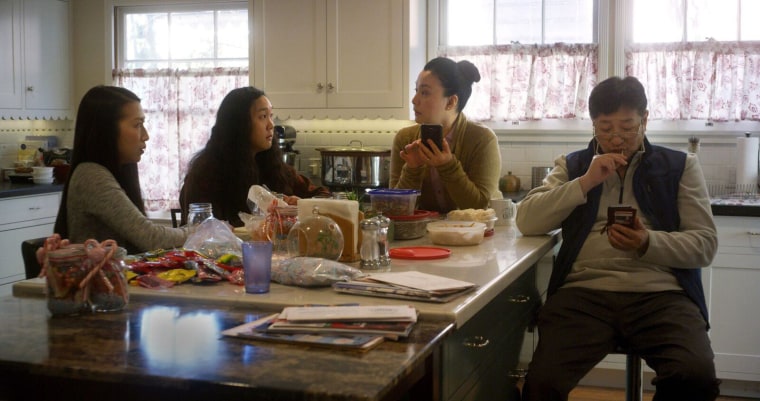Naomi Ko didn't plan to write a script that drew on her real-life experience as a breast cancer survivor.
“People have really strong opinions about how breast cancer patients should act,” she noted, adding that she didn’t want to be defined by her experience with the illness.
“I didn't want to be a part of that. This isn't the only story I have to tell,” she said. “Like, I want to write a screenplay about the Ottoman Empire, and that's just because I'm a nerd."
Still, Ko's friends urged her to tell the story as only she can, and she ended up writing “Nice,” a television series set in Minnesota whose Korean-American protagonist, Teddy Park, hides her cancer diagnosis from her friends and family.
I think that's a challenge a lot of creators of color have to deal with, this idea of having to explain your culture instead of just showing it.
The pilot episode aired in April at the Tribeca Film Festival with Ko in the lead role as the show's 20-something antihero.
As an actor, Ko's big screen breakthrough came through Justin Simien's 2014 film “Dear White People,” in which she played Sungmi, an Asian-American undergrad at the fictional Winchester University who aligns herself with African-American students fighting oppressive school administrators and ignorant white frat bros.
After the film's release, Ko began splitting her time between Minneapolis and Los Angeles. She also began writing the first draft of “Nice.”
The title of the project refers to a particular Midwestern sensibility that Ko wanted to translate to screen, she said, though she often satirizes aspects of Teddy's Minnesotan upbringing to comedic effect, such as the character of a well-meaning woman selling kitschy “mammo-graham” cookies at the hospital to raise breast cancer awareness.
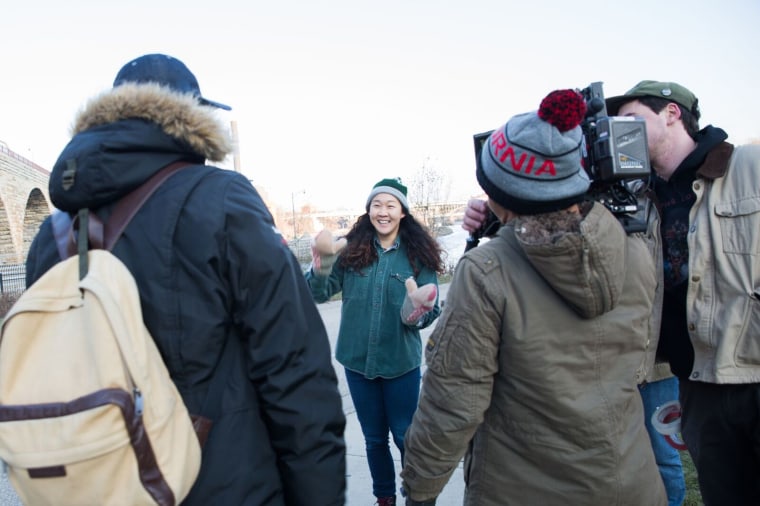
Teddy, who's just learned of her diagnosis, lashes out angrily; she can't stand the kind of falsely cheerful platitudes about breast cancer this “nice” Minnesotan and her cookies represent.
For Ko, part of writing “Nice” arose from her belief in the importance of showing a diversity of Asian-American experiences, and not just stories from the coasts. Analysis of the 2010 U.S. Census by the Star Tribune found that Asian Americans are the fastest growing demographic in Minnesota. As a creator, she's deeply interested in the intersection between perceptions of Midwestern culture and Asian-American identity.
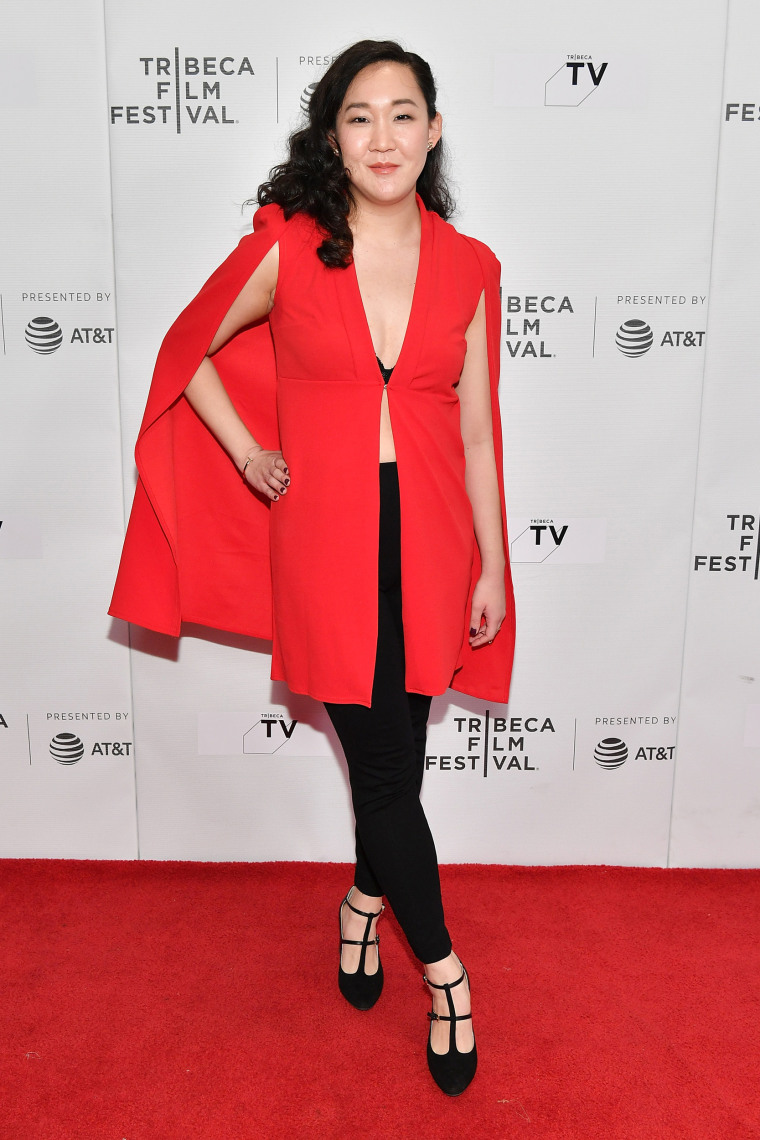
“A friend pointed out to me that the way I deal with certain situations, in some ways I'm suppressing my Korean-ness because my Minnesota would come out, like ‘I can't say that because it's not polite,’” Ko said. “In other cases I would rage like the Korean person that I am. There's an interesting dichotomy, what's it like to be Korean and from a state that's considered America's Heartland.”
Three years ago, she finished writing the script and pitched it to several networks and production companies. “So many executives said to me, I had no idea that Asian people lived in Minnesota,” Ko recalled. Her reply: “Yeah, we exist!”
The show sold to a major Hollywood studio, Ko said, but creative differences surfaced during development. She sought out a sympathetic ear in friend Andrew Ahn, director of the critically acclaimed 2016 indie hit “Spa Night.” The two had been introduced by a mutual Asian-American artist friend when Ko first moved to Los Angeles.
“I could just tell they didn't necessarily have a strong Asian-American perspective,” Ahn said of hearing about Ko's experience working with the studio.
“I don't think they understood what Naomi was trying to do,” he added, recalling an anecdote Ko told him about meeting with a Korean American Studies professor for research, in order to justify some cultural component in “Nice.” As a friend, and as a fellow Korean-American creative who believed in Ko's instincts, he worried that the project was moving away from her unique vision.
“I think that's a challenge a lot of creators of color have to deal with, this idea of having to explain your culture instead of just showing it,” Ahn said. “There was the feeling that the project back then was becoming something Naomi didn't originally intend, to pander to an audience that it wasn't going to be meaningful for. Ultimately, it wouldn't connect with anyone.”
“It wasn't a good fit,” Ko said. She parted ways amicably with the company, she said, and then applied for an artist fellowship from the Minnesota-based McKnight Foundation, winning the $25,000 grant, which became the seed money to independently produce the pilot episode of “Nice.”
After deciding to forge ahead on her own terms, Ko was adamant about partnering with Ahn on this iteration of the project as well as Korean-American producer Carolyn Mao.
For Ahn, the opportunity to work on “Nice” also meant multiple firsts: His first time directing a project written by a fellow Korean American and his first shoot outside of Los Angeles.
“When Naomi asked me to direct, she took me on a scouting trip in Minnesota. Seeing the landscape, meeting the Asian-American community of artists there, it was clear there was a very vibrant community that deserves to seen on screen,” he said. “It felt like a really cool opportunity, especially after ‘Spa Night,’ because that was so much of my own thing. I wanted to try directing stories outside myself and to understand a different aspect of collaboration.”
Ten months after receiving the McKnight grant, Ko and her partners were invited to screen the pilot at the Tribeca Film Festival in New York.
“It's kind of unreal. It's amazing,” Ko said about the premiere. “The work I do, writing, I'm just at home all day, disgusting, in sweatpants, not washing my face. The ultimate goal is to make something, not just to write it. Knowing that we did it is satisfying. It was a great moment to have people from our LA, Minnesota, and New York communities there to celebrate.”
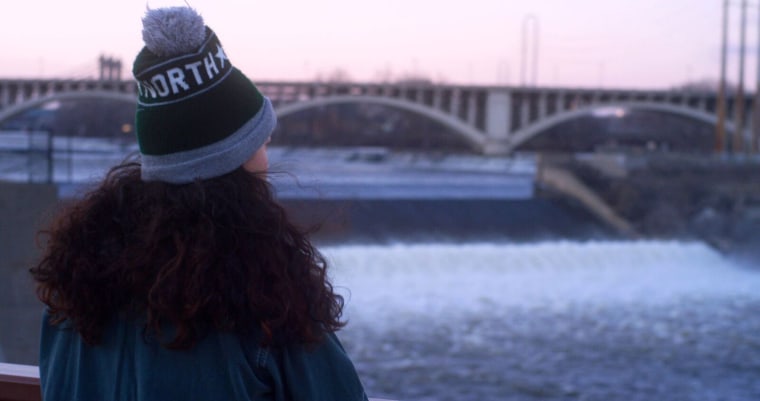
But Ko isn't resting for a minute on her Tribeca laurels, she’s working to sell, develop, produce, and get the series to air.
Mao, the producer, added, “With film, there's a part where the festival is the end goal, you've reached this moment where it gets seen by an audience. Programming TV at festivals is a newer venture, so with our show, it was so great to have a screening, but there's something about it like there's supposed to be more. There's a feeling of, what now, what's next? In a way, the festival premiere felt like the beginning of the journey.”
“Nice” isn't the only project keeping Ko busy. This summer, she plans to launch the Asian Pacific Islander American Minnesotan Film Collective, an initiative to create opportunities for emerging screenwriters and filmmakers in the Twin Cities.
“After shooting the ‘Nice’ pilot in Minnesota, Carolyn, Andrew, and I met so many Asian Pacific Islander Americans who wanted to learn more about the industry, about indie filmmaking, but don't have access,” Ko said. “Most of this community is Southeast Asian, refugees from Laos, folks who are Hmong, Vietnamese. I come from a place of privilege because I can afford flights back and forth, I have a community of artists and filmmakers. So I decided to apply for a ton of grants, so that I can bring LA and New York to Minnesota.”
The project has received support from the Minnesota State Arts Board and the Metropolitan Regional Arts Council, Ko said.
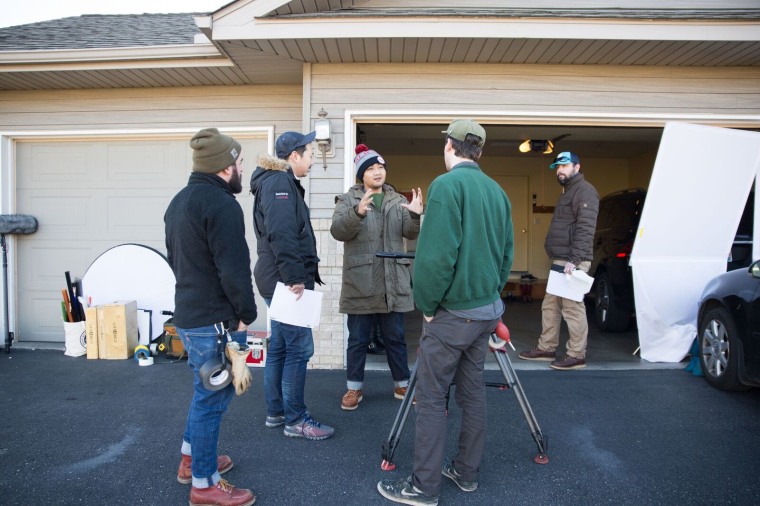
In a recent retrospective meeting for the McKnight artist grantees in Minneapolis, Ko finally acknowledged her success in bringing a vision to reality.
“Receiving funding for a project is one thing, but getting it noticed, getting the opportunity to prove your potential is a whole other beast,” she said. “It reminded me of how hard we worked to get this done.”
Ko's community minded spirit and plans to create a pipeline for more Asian-American Minnesotan media creators may yet prove that Hollywood executives and broader audiences will soon be seeing more Asian-American Heartland stories and then perhaps Ko can feel free to write that Ottoman Empire script she's been dreaming about. Until then, Ko and her creative team are pitching the version of “Nice” they made without compromising or pandering.
“This project is only possible really from Naomi's sheer force of will, getting people together, bringing them in, not letting go,” Ahn said.
“It's that true independent spirit of making stuff happen,” Mao added.
Follow NBC Asian America on Facebook, Twitter, Instagram and Tumblr.
CORRECTION (July 2, 2018, 5:25 p.m. ET): An earlier version of this article misstated the month the pilot episode of "Nice" premiered. It was April, not May. Additionally, the article misstated the setting of the film "Dear White People." It was the fictional Winchester University, not the University of Minnesota.
